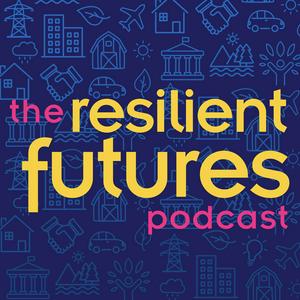Resilient Futures is a monthly podcast on all things resilience! The show examines this topic by discussing ongoing research, highlighting current efforts, and sharing stories of resilience in diverse contexts across the world! By exploring a wide variety of perspectives, the show digs deep into understanding the many dimensions of resilience. New episodes will be released at the start of every month. If you have questions about things we've discussed or have suggestions for future episodes, please e-mail us at
[email protected] or send us a message on Twitter @RFuturesPod. (This podcast was previously named Future Cities.)

